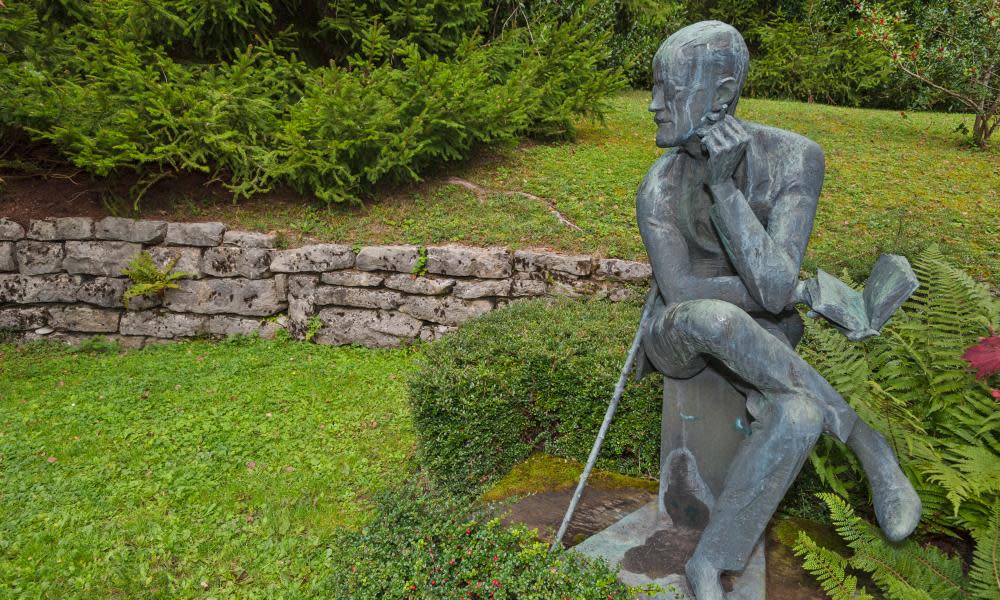The Guardian view on repatriating James Joyce’s remains: Dublin should tread carefully

“Do you know what Ireland is? Ireland is the old sow that eats her farrow.” So says Stephen Dedalus in James Joyce’s semi-autobiographical novel A Portrait of the Artist as a Young Man.
Joyce made sure he escaped that fate by abandoning Dublin for Trieste in 1904, rejecting a world he thought suffocated by Catholic piety, censorious morals and narrow nationalism. He came to be viewed with deep suspicion by the devout representatives of the Irish Free State, which was founded in 1922 – the year that Joyce’s great modernist work, Ulysses, came out in Paris. The book was roundly denounced in Ireland, where one paper described it as “literature of the latrine”.
Now Dublin wants Joyce back. Two city councillors are suggesting that his remains be repatriated from Fluntern cemetery in Zurich. Following the author’s death in 1941, his widow, Nora, requested the return of the body to Ireland, but permission was never granted. “Exile was a key element in his writing,” says Cllr Paddy McCartan. “But for it to follow him into eternity? I don’t think that was part of the plan.”
There is a poignancy to the idea of James Joyce returning to Dublin. But this is dangerous, ambivalent territory. The pain and longing that comes with exile, voluntary or otherwise, is a complicated business. A few years ago, Florence’s city council decided to bury the hatchet with Dante (whose work Joyce loved) and apologised for banishing him in 1302. There have been many attempts to bring the poet’s remains back the 65 miles from Ravenna, where he ended up, and an empty tomb awaits in the Basilica of Santa Croce. But critics of that project say the Divine Comedy is a masterpiece that could only have been written in exile and Dante should be left alone. In canto XVII of Paradiso (set two years before his expulsion) the poet is warned by an ancestor: “You shall leave everything you love most dearly: this is the arrow that the bow of exile shoots first. You are to know the bitter taste of others’ bread”. Posthumous reconciliation, seven centuries later, could be seen as too little too late.
Joyce was a slightly different case, having left on his own terms. But as with Dante, estrangement seemed to deepen the intimacy and intensity of a relationship that was now conducted in the imagination. Could Joyce have written so exquisitely of Dublin – its streets, its people, the way they talked and the rhythm of their days – without the perspective afforded by distance? In Paris, Joyce would ask visiting Dubliners to recount the names of shops and pubs in the city, in a kind of secular litany. There was presence in absence. Should that existential balance be preserved?
The Swiss have indicated a reluctance to lose the pilgrim tourists who visit Joyce’s Zurich grave. Another obstacle will be the need to gain the consent of the author’s living relatives. They include his grandson, Stephen, who has clashed with the Irish government before over the booming 21st-century Joyce industry. Maybe it will eventually happen. Maybe it won’t. In A Portrait, the budding artist, Dedalus, declares he will make his way in the world using the weapons of “exile and cunning”. It might take a lot of the latter to bring Joyce back to Ireland.

 Yahoo News
Yahoo News 
